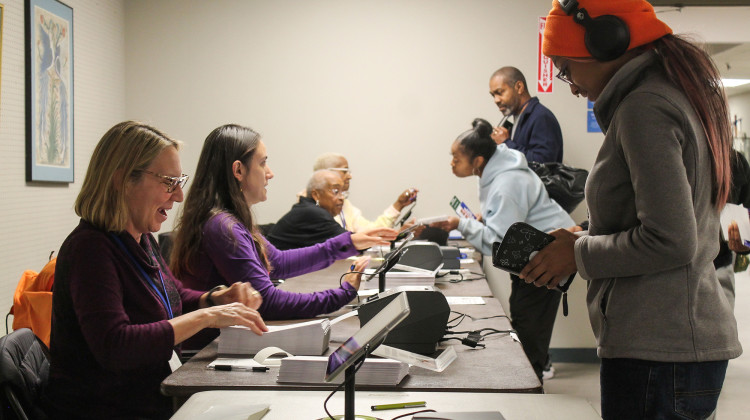The state’s school accountability panel finalized its recommendations for the State Board of Education and General Assembly Tuesday, and under the proposal, schools would be graded primarily on what students do after high school.
The panel suggests high schools should be graded in part, with student test scores and how many go through the new graduation pathways. Members said both test scores – or “academic proficiency” – and how many students meet various graduation requirements should count for no more than 30 percent of a high school’s letter grade.
But the third pillar of the recommendations means high school evaluations would rely mostly on what kids do after they leave: how many earn college credits or enroll in a college program or school; get a work certificate or paid apprenticeship; or enlist and serve in the military. Under the proposal, the enlistment, employment, and enrollment bucket would make up the final 70 percent of a high school's letter grade.
Bluffton High School Principal Steve Baker says that expectation ignores students who might need more support just to finish high school or want to follow a different path.
“Many of my students will not have value in box three, so I will have to change what I’m doing in order to try to get a better letter grade or, I really do what’s best for my students,” Baker says.
Baker also says the accountability proposal ignores work done through the graduation pathways, and says he’s disappointed with the direction the group moved in for its recommendations.
“We really thought going in, that the accountability would stress the completion of a pathway, and it seems like here at the end it went in a different direction and more into post-secondary outcomes which is what I thought we were getting away from in the beginning,” he says.
Pat Mapes is a state board member and superintendent of Perry Township Schools and sits on the accountability panel. He says the proposed framework won’t recognize all of the work schools do under the new graduation pathways. The graduation pathways went into effect with this year’s freshman, also known as the class of 2023.
“A kid goes through a work based learning experience and there’s nothing there in accountability to give us credit that the kid went and got experience, just because he wasn’t paid,'” Mapes says.
But other members of the panel say not all of the graduation pathways provide students with a type of “currency” to use after graduation, making the outcomes essential. House Education Committee Chair Bob Behning says not all graduation pathways will provide credentials for students to find jobs or careers, which has been an intense focus for education policymakers.
“They’re outcomes to pathways if you take the next step,” he says. “That’s why we tried to be more focused in terms of ‘these are demonstrateable [sic] certificates or currency that can walk into an employer and say ‘I have X.’”
The school accountability recommendations now go to the State Board of Education and the General Assembly for consideration.
Contact Jeanie at jlindsa@iu.edu or follow her on Twitter at @jeanjeanielindz.
 DONATE
DONATE








 Support WFYI. We can't do it without you.
Support WFYI. We can't do it without you.